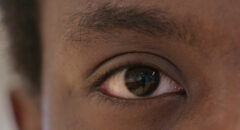
Why do I -- or members of my family -- need to see an eye doctor?
Sooner or later almost everyone will need to use eyeglasses. Vision problems are generally divided into two categories: nearsightedness (being able to see clearly only when things are close up or nearby), or farsightedness (being able to see things far away, while small nearby objects, such as printed words, appear blurred).
People with nearsightedness normally need eyeglasses throughout their life. When most people reach age 40 or older, their eyes gradually become more farsighted -- a condition called presbyopia, which requires corrective glasses for reading or doing detailed work. This is a perfectly natural consequence of the aging process.
Other eye conditions and diseases -- including cataracts, glaucoma, astigmatism, lazy eye (amblyopia), retinal disorders, and the side effects of high blood pressure, diabetes, and heart disease -- also require an eye doctor's ongoing monitoring and care. Eye care professionals stress that if caught early on, all these eye diseases can be treated. Without treatment, some of them can cause permanent blindness.
Some adults are only motivated to see an eye doctor "when they can't see," says Kerry Beebe, an optometrist in Brainerd, Minnesota and former chair of the American Optometric Association's Clinical Care Executive Committee. Yet adults should have regular eye exams even if their vision is good because an exam can detect early-stage diseases - even if you're not having symptoms. In one dramatic example, eye tests can sometimes detect brain tumors. They can also reveal eye damage due to diabetes, which is a leading cause of blindness.
RELATED: Have Diabetes? Don’t Lose Sight of Danger to Your Eyes
When should my child see an eye doctor?
Studies show that one in four children has vision problems, yet nearly half of parents with children 12 or younger have not taken their child to an eye doctor. Often, however, vision screening programs in school pick up the most common problems. Eye doctors recommend that children start getting eye exams when they are six months old. This is usually done by the baby's pediatrician, who performs a few simple tests to make sure the baby's vision is tracking properly, that light is getting through to the retina and that there is no evidence of the eyes crossing.
Even if their eyes are fine, they should be seen again at three years old, and once more before they start first grade. Again, vision tests for young children are normally done in a family doctor's or pediatrician's office and don't require an eye doctor unless the child has eye disease or vision problems that need correction.
Doctors stress that parents should talk to the child's doctor if they suspect a vision problem. "If caught early enough, at three or four years old, children's eye conditions are very treatable," says Beebe, who has practiced optometry for 47 years. "But if (eye diseases) are not caught until children are eight or nine years old, they may not have good vision for the rest of their lives. I see children every day who can't read the big E on the eye chart. Their parents think everything is fine and the kids figure everyone sees like this. They can't see the blackboard, but they can read up close."
Should I see an optometrist or an ophthalmologist?
Optometrists, or doctors of optometry (OD), are specialists in optical disorders and vision. Optometrists are trained and licensed to diagnose and treat vision problems as well as some eye conditions. They can prescribe eyeglasses, contact lenses, low vision aids, vision therapy, and provide pre-and post-operative care. In some states, optometrists may perform some forms of laser surgery. If you have a serious eye condition or disease, an optometrist will refer you to an ophthalmologist.
An ophthalmologist is a physician -- a medical doctor (MD) or a doctor of osteopathy (DO) -- who specializes in the medical and surgical treatment of eye diseases and eye injuries. Ophthalmologists are licensed to perform major eye surgery (such as LASIK surgery, cataract removal, retinal detachments, and lens implants) and prescribe medications. Many ophthalmologists also provide eye exams and services such as prescribing eyeglasses and contact lenses.
For routine eye care and exams, an optometrist is the most logical choice. However, if you've experienced a major change in your vision or suspect you have a serious eye problem, it may make sense to see an ophthalmologist. Ophthalmologists, because they are MDs, charge higher fees than optometrists do.
How do I find a good eye doctor?
First, you should decide what kind of eye care you need. Then find out what services are covered by your insurance plan. Most vision health coverage plans cover a portion or all of your eye care expenses.
Here are some ways to go about finding an eye doctor who meets your needs, according to the National Eye Institute of the National Institutes of Health (NIH):
- Find out if your insurance company or health plan has a list of eye doctors who are covered under your plan.
- Ask your friends, family, coworkers or neighbors if they can recommend qualified eye doctors.
- Ask other health professionals, such as a family doctor or primary care physician, nurses, pharmacists or dentists, if they can refer you to eye doctors they like.
- Call the optometry or ophthalmology department at a local hospital or university medical center.
- Contact a state or county association of optometrists or ophthalmologists to see if they have lists of eye doctors with specific information on specialty and experience.
- The American Optometric Association (AOA) offers a service called "Dr. Locator" to help the general public find optometrists within a specific region.
- The American Academy of Ophthalmology coordinates an online listing of member ophthalmologists called "Find an Ophthalmologist."
- Most large libraries have a reference set called "The ABMS Compendium of Certified Medical Professionals," which lists board-certified ophthalmologists and some biographical information.
- The Consumer's Guide to Top Doctors provides a state-by-state listing of medical specialists most frequently mentioned in a survey of doctors.
Also, check whether any malpractice actions have been taken against a particular doctor. A service called DocFinder provides links to the licensing boards in participating states.
Eye doctors should be certified through an accredited medical institution and should be currently licensed to practice in your state. Find out where the doctor earned his or her degree. Is the doctor board-certified? How long has he or she been in practice? What are the doctor's areas of specialty (pediatrics, geriatrics, glaucoma, LASIK, for example)?
"You want to make sure you're picking a doctor who is not only qualified but who specializes in the area you are concerned with," advises Beebe. "Eye doctors may have developed special interests, from examining infants to treating patients with glaucoma. If you're looking for an eye doctor for your 8-year-old, you may want to make sure the doctor likes to see 8-year-olds."
How can I tell if I've chosen the right eye doctor?
After you've seen the doctor, ask yourself whether you were fully satisfied with the care and service provided. Make sure that all of your concerns are addressed. If not, you may want to shop around. "You want a doctor who you feel confident does a complete and thorough exam as far as eye health; it shouldn't take two minutes," says Beebe. "Not only is it important that you can see when you're done, but you also want to make sure your eyes are healthy and disease-free."








